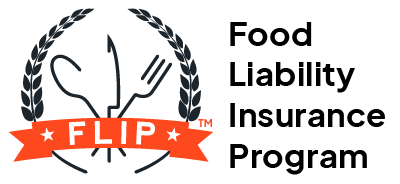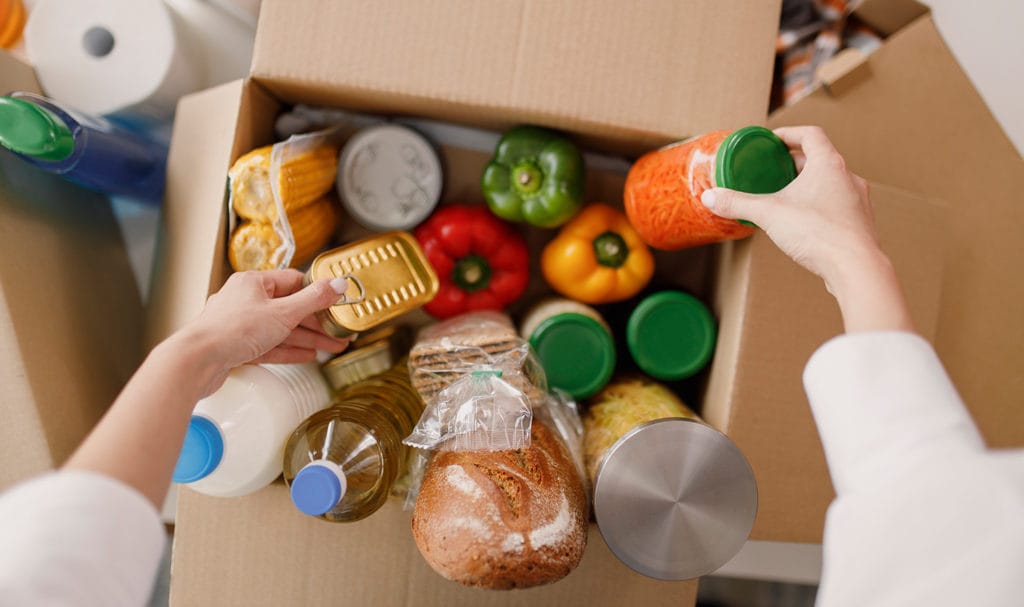The food industry is made up of a diverse group of businesses—manufacturing, importing, food processing, distribution, hospitality, and food services—just to name a few. All play an important role in the supply chain to deliver food products to consumers.
Despite their differences, something all of these businesses have in common is their exposure to lawsuits arising from foodborne illnesses.
Every food business from farm to fork is at risk of causing injuries and illnesses by way of its food products. However, this doesn’t have to spell disaster for your business!
Product liability insurance can help you manage these risks and protect you from having to pay completely out-of-pocket for related claims.
But what exactly does product liability insurance cover? Read on to get answers to your questions about this important coverage and learn how you can protect your business today.
Why Do I Need Product Liability Insurance for Food?
Food businesses like yours need product liability insurance because the risk of a customer contracting food poisoning from something you served, sold, or manufactured is not an uncommon one.
According to the Food and Drug Administration (FDA) article, What You Need to Know About Foodborne Illnesses, there are about 48 million cases of foodborne illnesses annually. That equates to 1 in 6 Americans every year, resulting in 128,000 hospitalizations and 3,000 deaths.
The Centers for Disease Control and Prevention says that the top five foodborne germs that cause illnesses like these in the United States are:
- Norovirus
- Salmonella
- Clostridium Perfringens
- Campylobacter
- Staphylococcus Aureus (Staph)
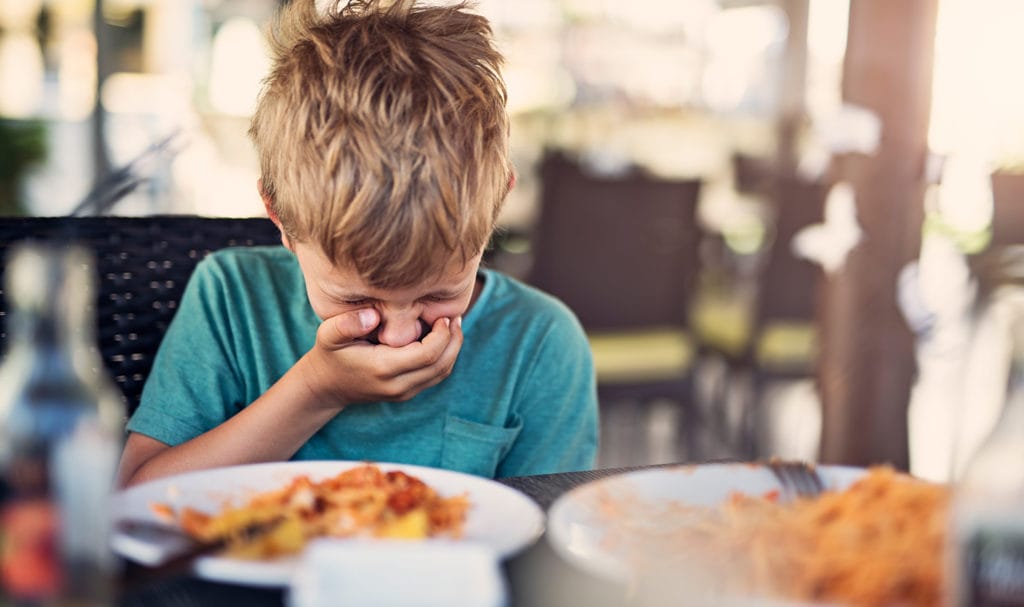
If someone gets a foodborne illness from something you sold, served, or manufactured, they can file a lawsuit and hold you financially responsible for the illnesses or damages your product caused.
Some of these expenses include:
- Medical bills
- Loss of income
- Out-of-pocket expenses
- Pain and suffering
- Emotional distress
And, in the worst-case scenario, a wrongful death lawsuit.
No matter where you fall in the supply chain, your business needs product liability insurance! Whether you’re a food truck owner, caterer, manufacturer, distributor, or processor, you can benefit from the protection of this coverage.
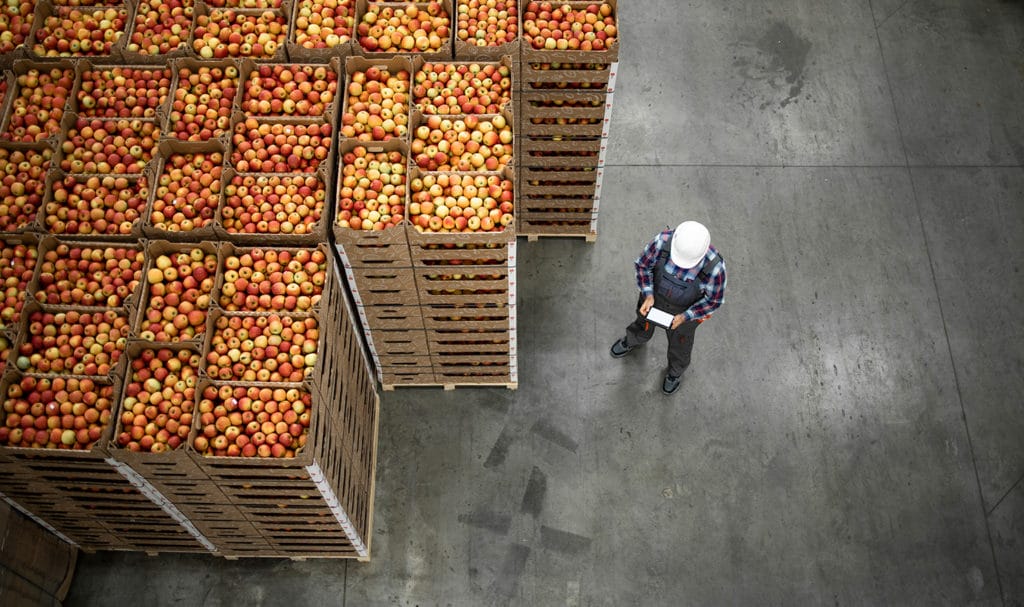
What’s Considered “My Product” Under Product Liability Insurance?
When you look at how a product is defined on a standard general liability policy, it states:
“Any goods or products manufactured, sold, handled, distributed, or disposed of by you or others trading under your name.”
As you can see, the definition almost encompasses the entire food supply chain.
This means that if a consumer purchases a packaged food product from a local vendor or big box store and becomes ill from the product, there’s a high probability that everyone getting that product to the shelf will be named in a lawsuit. That includes the importer (or manufacturer), wholesaler, distributor, and retailer.
Those in the supply chain with product liability insurance would be covered. Because at some point each party “manufactured, sold, handled, and distributed” the product before it got to the consumer.
If you are a restaurant, food truck, private chef, or caterer, your prepared food becomes your product.
In the case someone becomes ill due to your food, your product liability insurance may lower or eliminate the cost of a claim. This includes sickness, disease, or death caused by your food.
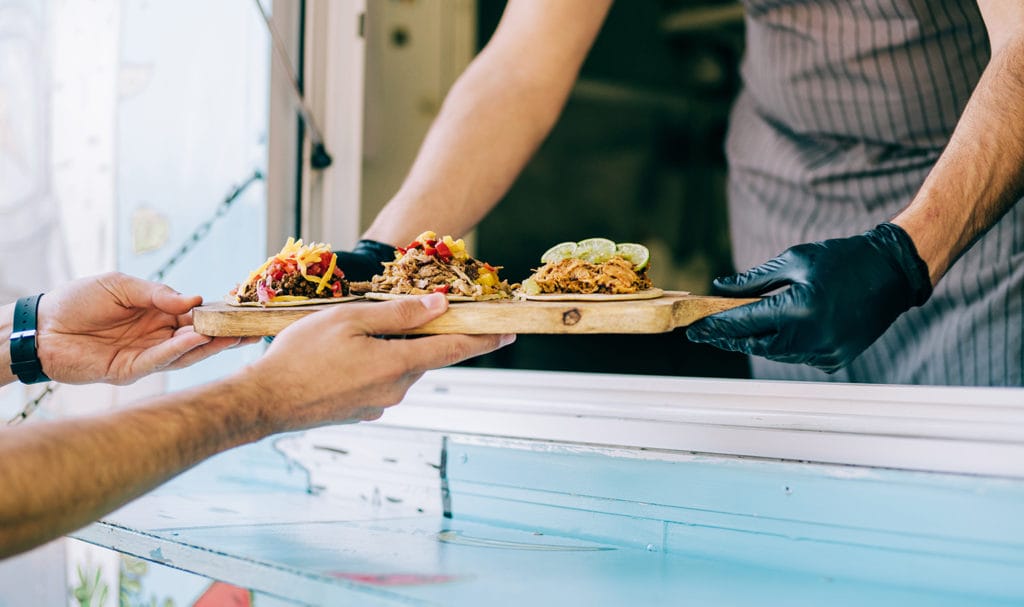
Is It Difficult to Get Product Liability Insurance for Food Businesses?
Typically, it’s not hard for businesses to obtain general and product liability insurance for the food industry. When it comes to product liability, the underwriting process is simple (depending on the food product).
However, there are some areas to be aware of that may cause an insurance underwriter to question or be reluctant to give you a quote. Let’s take a look at some of the factors that could make it challenging for you to get food product liability insurance.
1. Your Food’s Country of Origin
Every country has its own health and safety regulations, and some are stricter than others. For example, the European Food Safety Authority (EFSA) has completely banned the use of certain growth hormones.
Some countries are less regulated than others. For example, some countries might store fish and seafood on ice that may contain bacteria. Depending on what these fish are fed, they may have higher-than-acceptable levels of toxics according to US regulations. The same issues exist for meats, poultry, and produce.
If your food products come from a country with fewer regulations, this could prevent you from getting a quote or coverage because the insurance carrier determines your risk is too high.
2. How You Prepare Your Food
Many states have food preparation requirements when selling food to the public and require the use of commissary kitchens.
If you are a food truck owner, concessionaire, or mobile food vendor living in one of these states and do not use a commissary kitchen, your options to obtain product liability insurance may be slimmer.
Underwriters will want to confirm that you are abiding by your local and state laws when it comes to food preparation. If your state allows you to run a home-based food business, you may still be eligible for product liability insurance.
3. The Labels on Your Packaged Food
Besides making sure the ingredients are listed on your food product labels, the underwriter will see if there are any health claims being made about a product.
If health claims are made, the underwriter will need to know if they have been approved by the FDA. If they are not approved, it may be challenging to obtain product liability insurance.
4. If Your Food Is Considered a Supplement
The FDA defines dietary supplements as products “intended to add to or supplement the diet and are different from conventional food.” In general, if the product you’re making and/or selling is intended to treat, diagnose, cure, or prevent diseases, it’s considered a drug even if it’s labeled as a dietary supplement.
Nutritional supplement products are typically excluded or ineligible for most insurance companies providing coverage to the food industry.
There are specific insurance carriers that target product liability insurance for manufacturers or nutritional supplements, but it’s a different coverage plan than the typical food product policy.
If supplements are a part of your growth plan, you may want to consider having a separate entity (corporation or LLC) specific to that business. This will provide a separation between your food business and the supplement business and may be easier to obtain coverage for both companies.
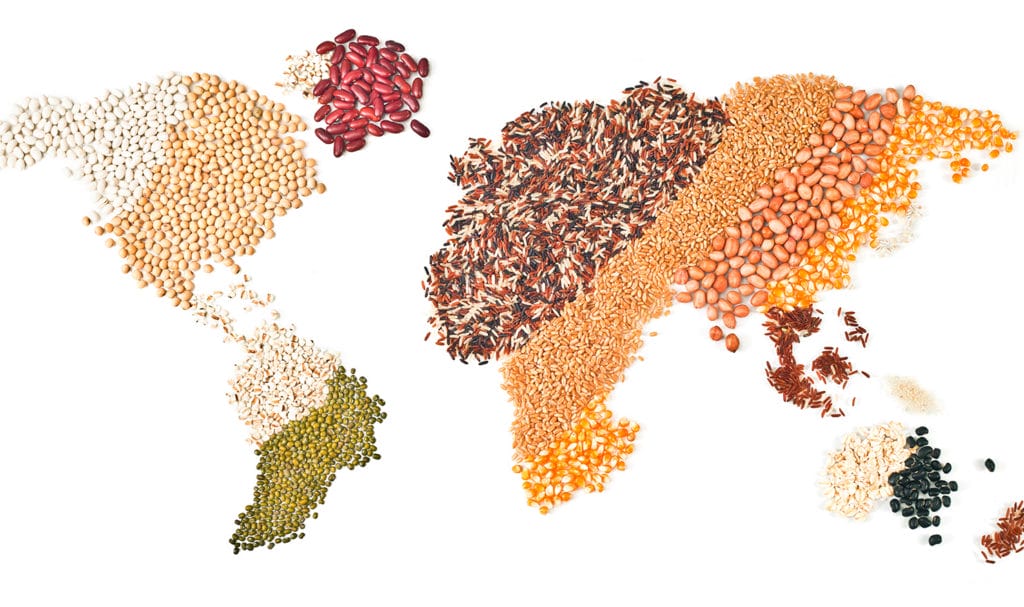
Are Food Recalls Covered Under Product Liability Insurance?
Occasionally, you may be required to take your products off the market because they have caused harm or it’s believed they will cause harm to the general public.
This action is not covered by most product liability insurance policies and would need additional coverage (or an endorsement) if available.
There can be significant costs associated with a product recall, such as:
- Notifying retailers and regulatory bodies
- Removing the product from the market
- Government fines
- Investigation costs
- Litigation costs
- Public relations management
- Storing and disposing of products
- Loss of income from recall
In 2021 alone, the USDA recalled 15.5 million pounds of food, but in 2016 that number was a staggering 58.14 million.
While these instances would not be covered by product liability insurance without additional endorsements, other common claims related to food poisoning or unlabeled allergens could be covered by your policy.

How Can I Prevent Product Liability Claims?
Follow Food Safety Procedures
Knowing how to properly prepare and store food is something all states require of food businesses because of the dangers associated with foodborne illnesses and cross-contamination.
By making sure that both you and your employees have proper food safety certification, you can better prevent situations that might lead to a product liability claim, like undercooked meat giving a customer food poisoning.
Regularly Clean and Inspect Your Equipment
Whether you’re growing, manufacturing, or preparing food, you’re using equipment that can break down with time. This could lead to parts of the machinery falling off and into your food products, which then causes a customer to get injured when they bite into one.
Your equipment will also get dirty with use and could become a breeding ground for germs and bacteria if not cleaned regularly. Make sure you’re cleaning equipment every day and schedule inspections so you can catch whether something might need repairs before it breaks down further.
Check Your Labels for Accuracy
If you’re labeling food, whether on a package or a menu, you need to make sure common food allergens are listed clearly alongside other ingredients.
If you fail to let your customers know that your noodle stir fry contains peanuts and a customer with a nut allergy has a severe reaction to it, you could face an expensive lawsuit.
By disclosing allergens on food labels and menus, your customers can safely consume your food and you can prevent yourself from getting hit with thousands of dollars in legal fees.
Start Managing Your Liability Risks Today
No matter where you are in the food industry supply chain, you face a unique set of risks because you work with food. Because your business is exposed to product liability claims, you need insurance to shield your business.
Talking through the process with an insurance advisor can be helpful when navigating the insurance industry. FLIP can help assess your exposures and provide multiple insurance coverage options to meet your needs.
If you have any questions, please call one of our licensed representatives at 844.520.6992 and they will be happy to assist you.
Disclaimer: All policies have limitations, terms, exclusions, and conditions. Please refer to your policy for exact verbiage and coverages.
